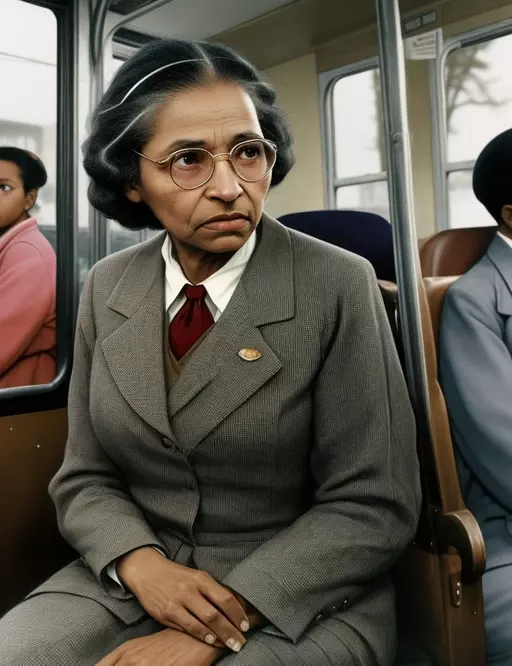Rosa Parks and the Montgomery Bus Boycott: A Defiant Stand for Civil Rights (1955)
Igniting Change through Courageous Action

Introduction
On December 1, 1955, Rosa Parks, a fearless civil rights activist, took a stand against segregation and racial discrimination by refusing to surrender her bus seat to a white passenger in Montgomery, Alabama. This act of defiance sparked the Montgomery Bus Boycott, a pivotal moment in the history of the civil rights movement. Explore the story of Rosa Parks, the significance of her courageous stand, and the transformative impact of the Montgomery Bus Boycott in the fight against racial injustice.
Rosa Parks: The Woman Behind the Act
Rosa Parks was not just an individual but a symbol of resistance against racial injustice. Her background as a seamstress and activist provided the foundation for her unwavering commitment to civil rights. Rosa Parks was a member of the NAACP and had long been involved in advocating for racial equality.
The Defiant Act on the Bus
On that fateful day, Rosa Parks boarded a bus in Montgomery and, when asked to give up her seat for a white passenger, refused to comply. This singular act of defiance was not just a personal choice; it was a deliberate challenge to the discriminatory segregation laws of the time. Rosa Parks' refusal to yield her seat set in motion a series of events that would change the course of history.
The Montgomery Bus Boycott
Rosa Parks' arrest led to the initiation of the Montgomery Bus Boycott—a coordinated effort by the African American community to protest segregated public transportation. Led by figures such as Martin Luther King Jr., the boycott lasted for 381 days. The collective action of the community dealt a significant blow to the segregated bus system and demonstrated the power of nonviolent resistance in the struggle for civil rights.
Significance in the Civil Rights Movement
Rosa Parks' courageous stand and the subsequent Montgomery Bus Boycott were pivotal moments in the civil rights movement. The boycott demonstrated the effectiveness of nonviolent protest in challenging racial segregation and served as a catalyst for broader efforts to dismantle discriminatory laws. The events in Montgomery inspired activists and laid the groundwork for the larger movement that would bring about significant legislative changes in the years to come.
Legacy of Rosa Parks
Rosa Parks' legacy extends far beyond that historic bus ride. Her act of resistance became a symbol of the fight against racial injustice, and she continued to be a tireless advocate for civil rights throughout her life. Rosa Parks remains an iconic figure whose courage and determination are remembered and celebrated in the ongoing struggle for equality and justice.
As we reflect on December 1, 1955, let us honor Rosa Parks and the Montgomery Bus Boycott as catalysts for change in the fight against racial segregation. The courage of one woman sparked a movement that reverberated far beyond Montgomery, leaving an indelible mark on the civil rights movement and inspiring generations to come.



